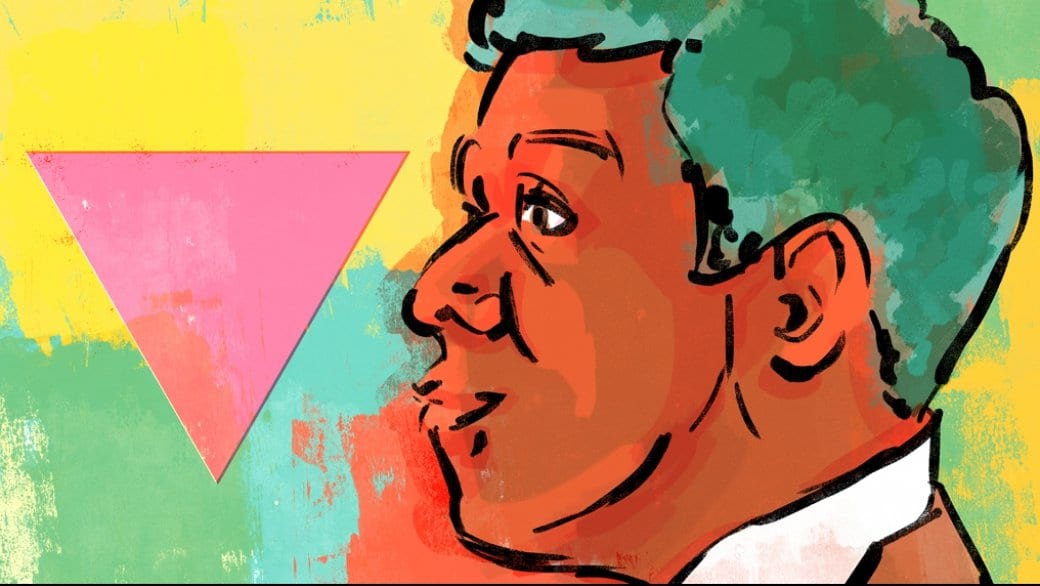Imagine a history of the United States of America where a black queer man was a heartbeat away from the presidency.
In 1980, leading up to the Democratic National Convention that would decide the pick for Democratic presidential candidate and their running mate, Melvin Boozer was put forth as a candidate. Endorsed by the Socialist Party USA and sponsored by the 87-member Lesbian and Gay Caucus of convention delegates, this made Boozer the first openly gay vice-presidential party candidate.
In a speech addressing the convention, Boozer outlined the Democratic party’s work on equal rights for all, including women, black Americans, and gay and lesbian people. In this speech, he delivered the following, gut-wrenching lines:
“Would you ask me how I’d dare to compare the civil rights struggle with the struggle for lesbian and gay rights? I can compare, and I do compare them. I know what it means to be called a nigger. I know what it means to be called a faggot. And I can sum up the difference in one word: none.
“Bigotry is bigotry. I have been booed before. Discrimination is discrimination. It hurts just as much. It dishonors our way of life just as much, and it betrays a common lack of understanding, fairness and compassion.”
Being the first openly gay vice-presidential party candidate was an incredible moment for America’s gay and lesbian community, but this was only one in a long list of achievements by Dr Melvin “Mel” Boozer.
As historian James Thomas Sears writes in Rebels, Rubyfruit, and Rhinestones: Queering Space in the Stonewall South, Boozer was raised in Washington, DC. He was an usher at his family’s African Methodist Episcopal Zion Church, a colonel in his local student cadet corp and was the highest ranked student in his graduating class at the Paul Laurence Dunbar High School.
He was one of only three African American students admitted to New Hampshire’s Dartmouth College in 1963, which he attended on scholarship. (Dartmouth’s school motto is Vox clamantis in deserto, which is “A voice crying out in the wilderness” in English, strangely apropos to Boozer’s story.)
Sears notes that Boozer’s admittance was the same year as the Birmingham bus boycotts (during the Birmingham campaign, when African Americans were widely protesting racial segregation on public transit), and the famous March on Washington for Jobs and Freedom.
He remained closeted until adulthood; Sears writes that Boozer “had known since childhood he was attracted to males, being in an all-male college and black meant that his absence of heterosexual dating practices went unnoticed.” After completing his PhD at Yale, he became a professor of sociology at the University of Maryland.
It was during this period of Boozer’s life that his activism began. In 1979, he was elected president, the first of two single-year terms, of the Gay Activists Alliance, a not-for-profit organization that advocated for the rights of gay and lesbian people in Washington, DC (the group is still active today as the Gay and Lesbian Activists Alliance). As part of the GAA, Boozer won a court battle with the Washington Metropolitan Area Transit Authority to display posters that read “Someone in your life is gay” on public transit buses.
Sears’ book also delves into Boozer’s other accomplishments. He won a fight with the US Army allowing the GAA to lay a wreath on the Tomb of the Unknowns in Arlington National Cemetery in the name of gay and lesbian soldiers. Among a number of political successes, he championed empowering civilians against police abuses, and the inclusion of education on gay issues as regular training in the DC police academy. As the head of GAA, he was also part of an effort to recognize gay people as victims of the Holocaust leading into plans for a national Holocaust museum, addressing the issue in an open letter to then-president Jimmy Carter. He also was a regular contributor to BlackLight, the first black, gay periodical.
During the 1980 Democratic National Convention held in August at Madison Square Garden in New York, with Carter nominated by the Democrats to run for re-election, Boozer found himself nominated as vice-president against the sitting vice-president, Walter Mondale. This was thanks to 77 members of the lesbian and gay caucus, who had circulated a petition, garnering the signatures of 400 delegates to place his name in the nomination.
Writing about the event afterwards in its October 1980 issue, the Body Politic (Xtra’s predecessor published by Pink Triangle Press) explained that Boozer had received 49 votes when voting was halted halfway through the roll call, at which point Mondale had received the majority vote. “Boozer withdrew his nomination in order to obtain an opportunity to address the convention on lesbian and gay issues,” and thus he gave his impassioned speech recognizing gains that had been made for gay and lesbian people:
“Why should so many men and women continue to suffer from arbitrary discrimination? Why must we be denied a fair chance to participate in the American life which we have contributed to as much as anyone else? Why must we be subjected to harassment and intimidation and ridicule when the Constitution of this great nation has already provided that all citizens shall enjoy the equal protection of the law?”
The Body Politic described how, “Boozer’s declaration was favourably received by many of the delegates, but a few boos were heard at the conclusion of his speech.”
Carter and Mondale would not end up winning a second term in the White House. Instead, the presidency would go to Ronald Reagan and VP George H W Bush. Reagan was widely criticized as ignoring the AIDS crisis; his communications director, Pat Buchanan, said AIDS was “nature’s revenge on gay men.” By the time Reagan addressed the crisis in May 1987 at the Third International Conference on AIDS and nearly at the end of his second term, over 36,058 Americans had been diagnosed with AIDS and 20,849 had died.
Boozer himself died from AIDS-related illness at the age of 41, but not before seven years of advocacy and intellectualism. He is memorialized on the AIDS quilt — his name, above a pink triangle, is perhaps a nod to his efforts to recognize gay men as victims of the Holocaust — but there are many other reasons for people to remember Boozer: a powerful political trailblazer, the first openly gay party candidate for VP and as the black queer who was almost a heartbeat away from the presidency.
History Boys appears on Daily Xtra on the first and third Tuesday of every month. You can also follow them on Facebook.


 Why you can trust Xtra
Why you can trust Xtra


